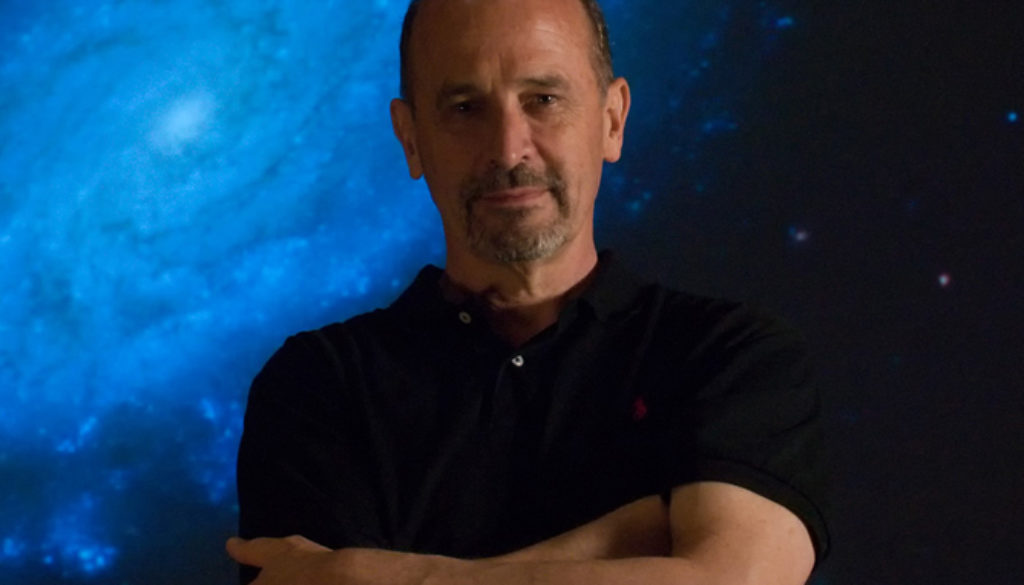Suntzeff Named Jefferson Science Fellow By State Department
Dr. Nicholas B. Suntzeff, professor of physics and astronomy and director of the astronomy program at Texas A&M University, has been named one of 12 Jefferson Science Fellows for 2010-2011 by the United States Department of State.
As a Jefferson Science Fellow, Suntzeff will advise the U.S. State Department on scientific issues as they relate to international diplomacy. He will serve in the State Department for one year, beginning in August, then return to Texas A&M, where he will remain available to the State Department on a consultancy basis in the future.
The Jefferson Science Fellowship Program was established in 2003 to create opportunities for substantial engagement of tenured scientists and engineers from U.S. academic institutions in State Department activities. Named after Thomas Jefferson, the first secretary of state, it is based on the premise that science and technology make fundamental contributions to the security, economic, health and cultural foundations of modern societies, and are integral to the development and implementation of foreign policy.
Suntzeff, an international expert in supernovae, cosmology and astronomical instrumentation, is the inaugural holder of the Mitchell-Heep-Munnerlyn Endowed Chair in Observational Astronomy within the George P. and Cynthia Woods Mitchell Institute for Fundamental Physics and Astronomy. He came to Texas A&M in spring 2006 to lead the university’s efforts to build a world-renowned program in astronomy and cosmology. Prior to that, he spent 20 years at the United States National Optical Astronomy Observatory (NOAO)/Cerro Tololo Inter-American Observatory in La Serena, Chile, where he was the associate director for science for NOAO and a tenured astronomer since 1996.
A decorated researcher and scholar, Suntzeff says he is both honored and humbled to receive his latest award.
“I am in great debt to the taxpayers of the United States for funding much of my research, and I feel it is important to repay their support by working in public service,” Suntzeff adds. “I am particularly proud to carry on the strong tradition of Texas A&M as the nation’s No. 1 university in public service to the U.S.”
Suntzeff is the first Texas A&M faculty member to be selected for the prestigious fellowship. He joins an elite group of 41 scholars nationwide who previously have been chosen to help further the State Department’s capacity for science, technology and engineering expertise.
“We knew Nick Suntzeff would be a highly competitive candidate for this award because of his leadership roles in multiple national committees and organizations and his many international honors earned in astronomy and cosmology,” says Texas A&M President Dr. R. Bowen Loftin. “Back in 2006, he instantly put Texas A&M Astronomy on the international map when he agreed to take on the challenge of building our program. This award reaffirms the strength of his reputation throughout the global scientific community — and of Texas A&M’s for its selfless service to improve our world.”
No stranger to policy advising and governmental service, Suntzeff is a current member of the NASA Advisory Council (NAC) Astrophysics Subcommittee, one of nine such NAC bodies that advises the National Aeronautics and Space Administration on their complete manifest of astrophysics projects — essentially all science conducted outside the solar system, including the Hubble Space Telescope, Fermi and approximately 10 other satellites. They also review all related research and technology development. A current vice president of the American Astronomical Association (2010-2013), he also serves on numerous boards of museums and observatories.
Suntzeff’s many previous awards include a share in the 2007 Gruber Cosmology Prize — widely acknowledged as second only to the Nobel Prize in terms of importance in the field of cosmology — for his role in the discovery that the expansion of the Universe is accelerating. The discovery, since dubbed dark energy, which comprises 75 percent of the mass and energy of the Universe, was honored as Science magazine’s “Scientific Breakthrough of the Year” in 1998. He is a two-time winner of the Association of Universities for Research in Astronomy Inc. (AURA) Science Award for his research on supernova SN1987A (1992) and cosmology (1999), as well as a co-recipient of the 1983 Robert J. Trumpler Award, given annually by the Astronomical Society of the Pacific in recognition of the most outstanding astronomy thesis of the year granted at North American universities. In addition, Suntzeff is one of the most highly cited researchers in space sciences, according to the Thomson/ISI Web of Knowledge index.
“We are very fortunate to have a faculty member of such high international reputation, and it is indeed an honor that Professor Suntzeff has been chosen to play this very important role,” says Dr. H. Joseph Newton, dean of the College of Science.
The Jefferson Science Fellows Program is funded by the U.S. State Department with additional support from participating universities. The program is endorsed by numerous professional scientific societies and organizations, including the National Academy of Sciences, which administers the program.
Each fellow receives a $50,000 stipend from the State Department for living expenses for a full year. An additional $10,000 is available to each fellow through the National Academies for travel associated with his/her assignment. Fellows also continue to receive salaries and benefits from their home institutions.
All Jefferson Fellowships are contingent upon awardees obtaining an official U.S. government security clearance.
To learn more about the Jefferson Science Fellows Program, visit http://sites.nationalacademies.org/PGA/Jefferson/index.htm.
Find more information on Suntzeff.
-aTm-
Contact: Shana K. Hutchins, (979) 862-1237 or shutchins@tamu.edu or Dr. Nicholas B. Suntzeff, (979) 458-1786 or suntzeff@physics.tamu.edu
The post Suntzeff Named Jefferson Science Fellow By State Department appeared first on Texas A&M College of Science
